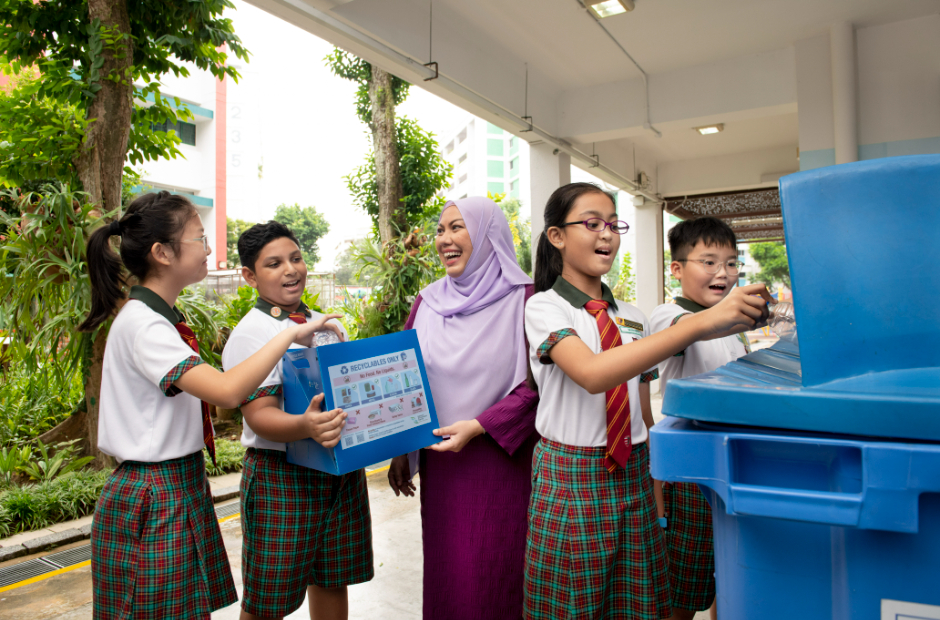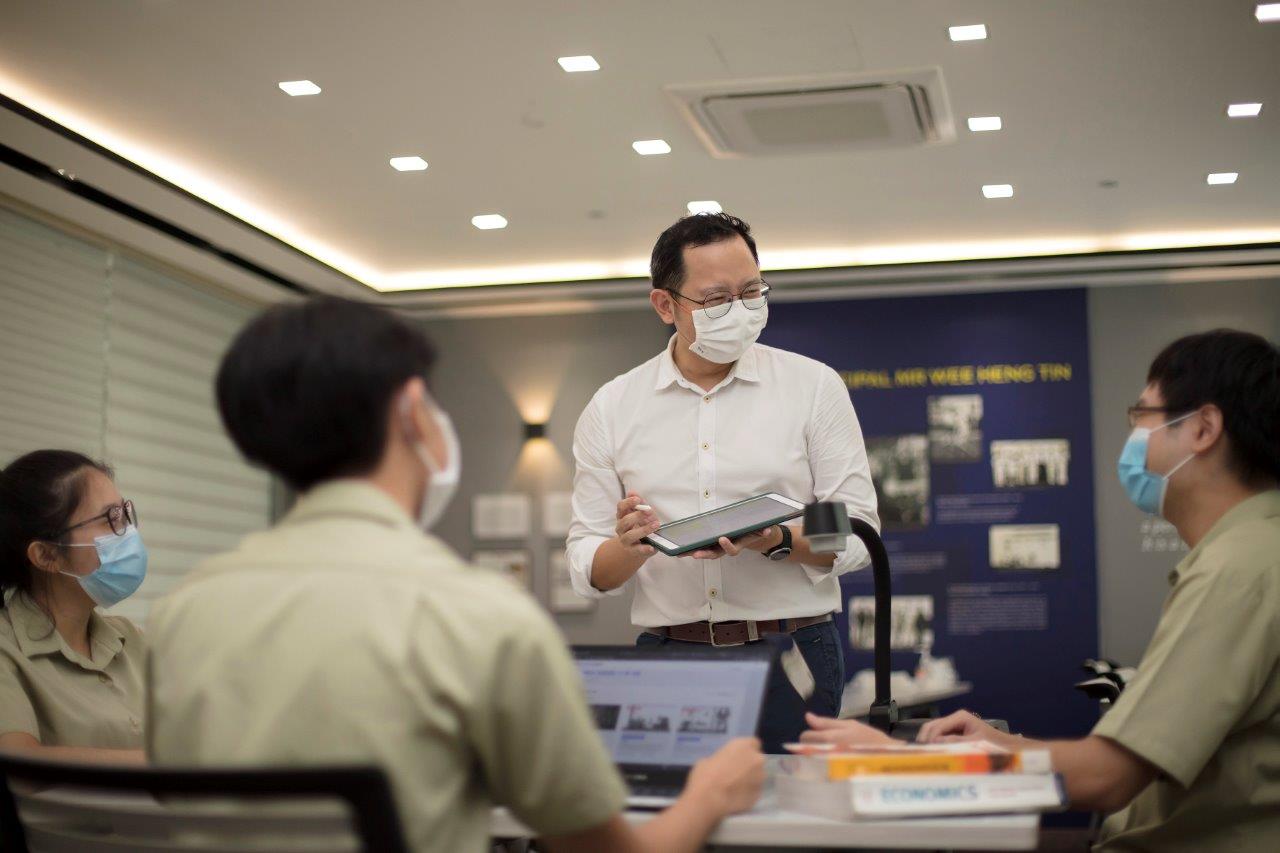Dr Chiradip Chatterjee, Republic Polytechnic, President’s Award for Teachers 2022 Finalist
Korean boyband BTS, soy-based abalone feed, and equal opportunity for students – what do they have in common? Dr Chiradip Chatterjee, a senior lecturer in pharmaceutical science at Republic Polytechnic.
“If you’re not smiling in class, the learning is not complete,” says the affable educator, summing up what effective lessons mean to him. Calling himself a “true-blue educator and researcher”, he wants to make learning fun and accessible to his students. So he reads their moods and adapts accordingly; it explains why on some days, he might put on pop music during lesson time to switch up the tempo, especially for classes taking place in the afternoons when everyone’s energies are flagging.
“We listen to good music like BTS and we just talk,” he says. “Teenagers get bored easily. I am usually immersed in teaching, but I’d sometimes go with the flow and say, OK, let’s do something new today.”
.jpg)
Other days, he may be explaining antimicrobial resistance to a class on pharmaceutical chemistry and he would choose to test the students’ understanding by asking them to craft their replies not in words but in cartoons. It’s a different way of helping them to process their thoughts, he adds, and, what’s the harm in the class having a few laughs at what goes up on the whiteboard?
“My mindset is that all my students are equal. So, it is up to me to tweak the way I support them so all of them have opportunities to succeed.”
One could call Chiradip a natural-born teacher. Born in Kolkata, India, he always knew that his calling was in teaching. His mother taught Science at a secondary school to mostly underprivileged girls, and Chiradip was amazed by how she could meet both their educational and basic needs.
Like her, he doesn’t want his students’ background or circumstances to affect their prospects. “All of my students are equal,” says Chiradip, who joined the Polytechnic 12 years ago after obtaining his PhD in Chemistry. “It is up to me to adapt the way I support them, so all of them have opportunities to succeed.”
More than a listening ear
One could say Chiradip has had some practice making lessons fun. He was a young uncle to a boy with autism, and discovered from spending time with him that he loved music and drama. And so, Chiradip would frequently arrange small family events where his nephew and other kids could put up skits, recite poetry or just jam online. When he visits during the holidays, he may engage him in baking, gift wrapping or outdoor fun. Seeing how his nephew, now 19, improved socially convinced him that a nurturing and positive environment is critical for a child’s development.
“There are many reasons why some students clam up in the beginning,” he explains of the newbies he sees every year. “Some may not be comfortable with English, some may have family problems, others may lack confidence.
“In the end, it’s actually about how a teacher approaches his students and helps them. If you give them time, space and a happy environment, it’s possible to draw them into class and to open up, or ask for help.”
A case in point: a student who took a break from school for a few months due to mental health issues. When she returned, Chiradip sought to better understand the nature of her illness; for her final-year project, he adjusted the project scope so that she would not need to work in a team and mentored her more closely. She successfully completed her project and graduated.
Another student, William Tay, whom he mentored for a longer period of three years, has special educational needs and faced challenges with socialising and making friends.
“My role was to boost his confidence,” Chiradip said, “He would text me whenever he needed a morale boost and I’d always tell him, you got this.”
Gradually, he saw the student transform from a reserved boy who had few friends, to a hardworking and confident young man who connected well with his peers.
In 2020, this student topped his cohort and won the Harvard Prize Book for overall excellence. He currently majors in Chemistry as an undergraduate, and has set his sights on a career in drug research and possibly work towards a PhD – in Chiradip’s footsteps.
Championing innovation through research
When Chiradip is not teaching and mentoring, he is immersed in industry research. Managed by the Polytechnic’s Office of Technology Development (OTD), researchers like him help to fill innovation gaps in the industry, benefitting startups and SMEs; some of their projects have earned product licences.
One recent project Chiradip is proud of involves developing cheaper feed for abalone, in place of feed made with fishmeal. Together with his students and peers, they created a protein alternative using soy pulp, called okara, a by-product from the processing of soy milk and tofu. Okara feed costs up to 30 per cent less and the baby abalone they fed the product with weighed 25% more; they also developed a healthier-looking purplish hue instead of the greyish colour of abalone fed with regular commercial feed. The team has reached out to abalone farms in the region to test the new feed.
.jpg)
As Chiradip works closely with his colleagues on these projects, he found himself to be an effective mentor to them. In 2019, he became a peer coach in his School of Applied Science, helping his colleagues attain their compulsory Certification in Facilitation. He reviews their portfolio, observes their classes, and provides feedback on what works and what doesn’t.
In summing up his contributions to his peers and students, he likens himself to a ladder that helps them climb their way up to achieve their dreams.
He has won numerous awards over the years, including the Teaching Excellence Award in 2019, and MOE Outstanding Mentor Award not one but four times. Yet, it is the personal touch he values the most. When William graduated, his mother gave Chiradip a chocolate cake in appreciation for his efforts. “I was very emotional when I received the cake,” he says. “It’s the most meaningful award to me.”



.jpg)


